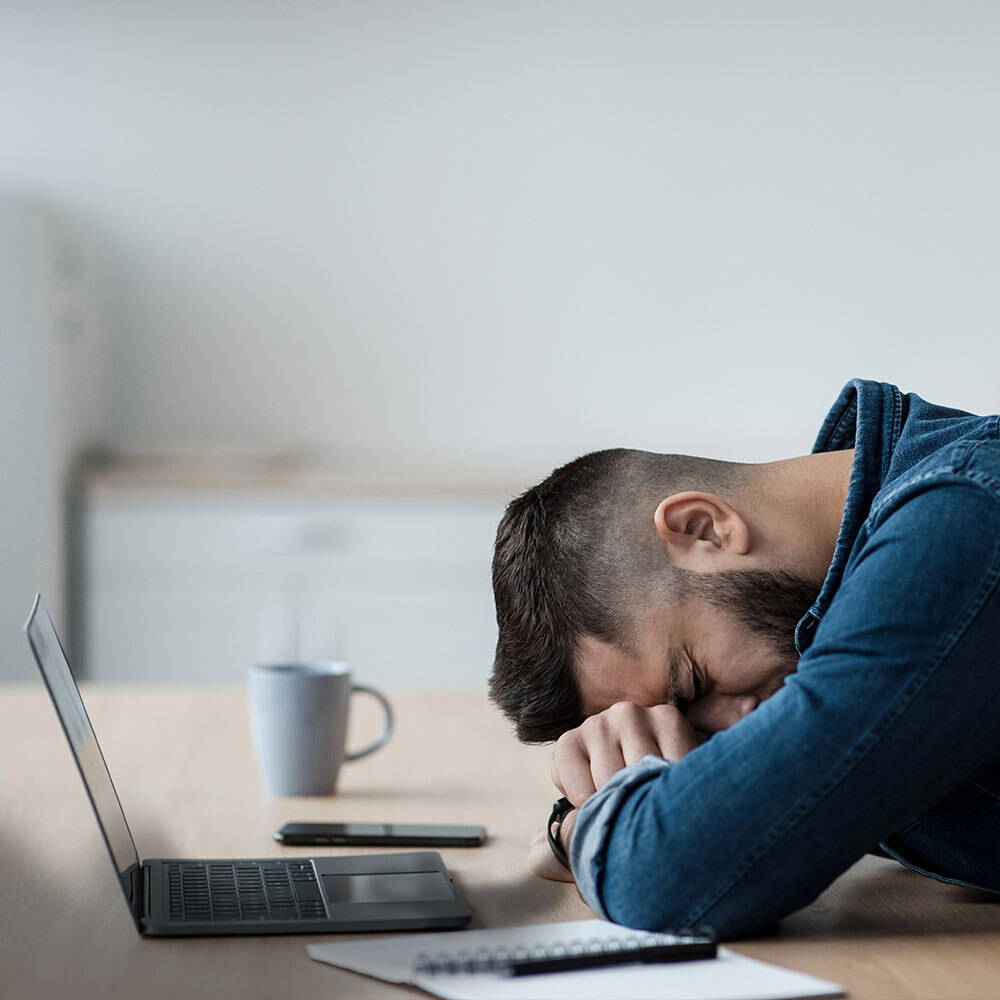Mental Fatigue: It’s About More
Written by Hayden Searle, MSc
Hayden holds a Master’s degree in Ergonomics and is registered with the Ergonomics Society of South Africa as a Certified Professional Ergonomist – In Training.
You’ve bought the equipment. You’ve set up your workspace. An ergonomic office chair and standing desk have made a wonderful difference. But you still struggle to focus towards the end of the day. Your attention wanders and you can’t think as quickly. The drive home can be scary because you can’t seem to focus. When you get home, it takes some time before you have the energy to make decisions about dinner or answer questions from family and friends.
Why is this?
Managing Our Batteries
Like our phones, our minds use energy doing all the wonderful things they can do. Additionally, like a phone has a rechargeable battery, our minds have resources that need to be recharged. This leaves us with two important, daily goals:
1. Extend our “battery life” so that we can thrive throughout our day.
2. Recharge our “batteries” every night so that we are ready for the next day.
We will be tired at the end of each day. That’s a sign that we have applied ourselves. But there is a difference between being tired and the kind of experiences described above. Put differently, there is a difference between tiredness and mental fatigue.
To understand what mental fatigue is, we need to understand a bit about how our minds work. There are two important resources our minds use up like energy in a battery: our ability to control ourselves and our ability to focus. Think of focusing as giving attention to something. Our self-control and focus influence how efficient we are at work, and how ready we feel to cope with the rest of our lives outside of work. When these resources run low, we experience mental fatigue. Symptoms of mental fatigue include irritability, impulsive decisions, and difficulty remembering information or what we were doing.

What Can We Do?
We want to avoid mental fatigue to thrive both at work and in our personal lives. The good news is that there are three simple things we can do to extend our mental batteries and to recharge them.
1. Rest
Resting is how our minds recharge. Yet, how we rest is important. The world around is shouting for our attention. Flashing lights, social media, horns, and advertising are all designed to grab our attention. That’s why we can scroll through social media or YouTube and not feel rested. Everything about those sites is designed to draw our attention and use it.
Instead, a walk without being on-call is a simple way for us to recharge. A short walk will allow our minds to rest from thinking about work. If possible, it’s even better if we can walk where nature is visible. This is because nature simply exists; it isn’t trying to grab our attention. If we can’t walk for a few minutes, we can combine our breaks. When we get some water, go to the bathroom, or chat to a colleague, we can focus on something other than work. Then, these short breaks rest your eyes, body, and mind. Talk about a great use of time!
Finally, if we can’t get away from our desks, a guided meditation session of just six minutes is another option. These really make a difference, and we don’t need to leave our desks.
Collectively, these small rest breaks are like closing apps on our phones to save battery. Small things add up, so why should we not invest small amounts of time to be more focused and productive?
2. Work Design
Some cell phone apps use more battery than others. Likewise, some of our tasks are more draining than others. Therefore, we can extend our battery life by designing non-disruptive rest breaks into these tasks. But first, these more draining tasks need to be identified. Our ergonomics risk assessments can include these assessments.
Assessment outcomes can range from the introduction of simple, natural rest breaks to work procedure changes through ergonomics training. If software engineers design applications to be as light on our phone batteries as possible, shouldn’t we do the same with our tasks when they affect our mental energy?
3. Sleep
Lastly, the importance of sleep for recharging cannot be overstated. If we get poor quality sleep or little sleep, our minds cannot recharge. Sleep should be last thing we sacrifice because we are then starting the next day at half-charge or less!
Conclusion
We all want to be pain free and love work. Being comfortable is big part of that, as is staying productive and efficient. The good news is that there are small, practical things we can do to maximise our productivity at work. We can take smaller, more frequent breaks. We can get active and let our minds rest. We can design our tasks to keep us efficient for longer.
And, we can protect our sleep so that we are ready to tackle the next day. An ergonomics risk assessment and training session can address these issues and more to take your workday to the next level of productivity and comfort. See the benefits to your work and beyond today.

